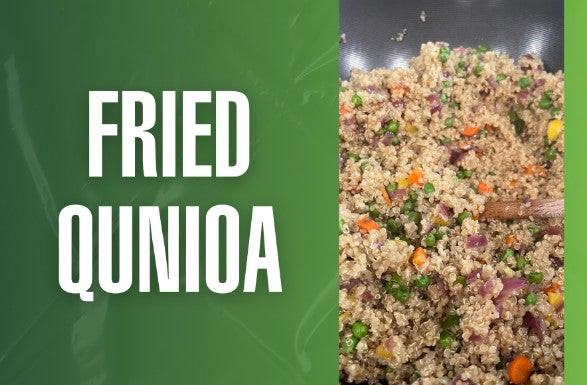 There’s one number that might tell you about your longevity and overall health more accurately than your age.
There’s one number that might tell you about your longevity and overall health more accurately than your age.If you’re guessing it’s your cholesterol level, resting heart rate, or blood pressure level, you’d be wrong.
If you’re guessing it’s your blood ratio of anti-inflammatory fats to inflammatory fats, that’s a great guess. Still not it, though.
Research has emerged that calculates the heart health prediction of when a person is likely to fall victim to the #1 cause of death in America. Even in 2020, twice as many people died of heart disease as the virus, and it looks as though that remained the case in 2021 as well.
This indicator is called vascular age. It’s a more wholistic picture of your cardiovascular health than blood pressure, cholesterol level, or resting heart rate alone.
Think of it as how old your arteries feel. The arteries tend to calcify as we get older. But certain activities – smoking, eating trans fats, chronic stress, and more – accelerate the aging of the arteries in one body versus another that remains physically active and avoids those behaviors.
Preventing calcification of the arteries indicates better cardiovascular health than looking at a person’s birthdate alone. Vascular age can indicate increased likelihood of stroke, heart attack, and/or developing heart disease.
Not only that, but vascular age gives us insight into who is in a fight for their life to reverse artery calcification. Yes, it can be reversed. Keep reading to find out how.
So you may be wondering by now how you find out your vascular age…
Harvard Medical School published a vascular age calculator you can use yourself to get a rough estimate.
There are precise medical diagnostic tools to determine the thickness of the lining of the arteries. Talk to your healthy practitioner if you have reason to believe your vascular age is worth careful measurement.
How to Keep Your Vascular Age Young

Whether you want to keep your vascular age younger than your calendar age, or you want to reverse the aging of your vascular system and actually undo calcification, it is vital that you do all 4 of these steps.
- Eat Healthy
Science tells us that eating well extends our life expectancy, and at the same time, increases quality of life while we’re still here.
One of the ways we know plant-based diets work so well to extend life expectancy is from studying people on the island of Okinawa, Japan. Average life expectancy there is the oldest of anywhere in the world, and their diet consists mostly of fruits and vegetables with occasional seafood and grass-fed meats. They eat very little dairy or grains, including less rice than other parts of Japan.
So it is truly vital that we eat diets rich in anti-inflammatory foods while we aim to minimize the inflammatory, acidic foods we consume. Anti-inflammatory foods support brain function, help prevent heart disease, prevent osteoarthritis, fight cancer-causing free-radicals, and support a healthy immune system.
Eat plenty of these anti-inflammatory foods:
- Dark, leafy greens
- Vegetables
- Fruits, especially berries, which slow brain decline
- Nuts, especially walnuts, pecans, and chestnuts
- Seeds like chia and flax
- Healthy fats like avocado and coconut
- Seafood rich in omega-3 fatty acids like Pacific salmon, which is full of anti-aging antioxidants
- Herbs and spices
- Other foods rich in antioxidants like cacao and goji berries
- Get Your Blood Pumping Regularly
A sedentary lifestyle is associated with risk of early death. But with that said, it’s not just important that you exercise, but also that you do forms of exercise that extend longevity. Research shows people who engage in swimming, strength training, cycling, and/or racket sports regularly decrease their risk of death considerably.

- Avoid Stressors and Manage Stress
It’s difficult but important to minimize the stressors in our lives, including our phones, social media, and the news. When it comes to stress we have no control over, practice meditation and deep breathing, get outside surrounded by nature, and make sure to get plenty of rest.
- Get Enough of 2 Vital Nutrients
There are 2 vitamins that keep arteries young, while also supporting overall heart health, immunity, and strong bones, and they are vitamins K and D.
These nutrients work synergistically – K cannot work without D, and D cannot work without K. This is part of the reason that so many Americans are vitamin D deficient (42%) even though it’s in milk and plant-based milk (and naturally available from the sun), because if you aren’t getting any vitamin K, D3 cannot be absorbed properly.
Likewise, 97% of Americans are vitamin K2 deficient. If you’re among the 1 in 4 adults who are vitamin D deficient, you can bet you’re also deficient in K.
Furthermore, if you’re taking a D3 supplement, but not getting any vitamin K, that can lead to serious trouble. It’s K2 that prevents calcium from settling in the heart, brain, kidneys, and (you guessed it!) arteries, leading to dangerous calcification. Vitamin K2 reroutes calcium to where it belongs – the bones.
Now, you may have noticed that I keep saying “D3” and “K2.” What does that mean? D3 is the type of vitamin D that can be taken orally in a supplement or milk product, as opposed to the D that comes from sunrays.
K2 is the more absorbable, stable version of vitamin K. K1 is also important, especially for infants because it helps with blood clotting, but it is K2 that best supports D3 and calcium in doing their jobs. There is also a synthetic K3, which I cannot recommend.
Scientific research is beginning to highlight the importance of K2 in heart health, just as the scientific community did with D3 after years and years of the natural medicine community shouting its benefits.
 One study showed that daily K2 consumption led to a 50% decrease in cardiovascular risk, and it extended the lives of the people in the test group by an average of 7 years! That’s vascular age in action.
One study showed that daily K2 consumption led to a 50% decrease in cardiovascular risk, and it extended the lives of the people in the test group by an average of 7 years! That’s vascular age in action.
Now you can see why taking D3 and K2 are one of the 4 most important things you can do to reduce your vascular age and live a long, healthy life.
So now that you know WHY you need to take D3 and K2, let’s talk about WHAT to look for.
What to Look for in D3 and K2 Supplements
The first thing you need to know is that K2 is fat soluble, meaning even if you take K2, but not with any fats, you’re not going to absorb it. So you must look for one that has sources of fat added, and healthy fats I might add.
The second gets even more complicated on the specifics of K2 because within K2, there are different types. Long story short: you want to take MK-7, which actively works within your body for 3 full days, allowing you to get the best use of it. The other forms come from synthetic sources or dairy, and have a much shorter half-life.
As with all supplements, you also want to be sure it is allergen-free (especially dairy and egg), GMO-free, and vegan.
Our newest supplement, Acid-Kicking D3+K2, is the best vitamin D supplement on the market. Our plant-based liquid supplement is made from the highest quality sources of D3 and K2 MK-7, along with organic oil, organic extra virgin olive oil, and vitamin E to increase bioavailability, absorption, and assimilation.
 Not only does it boost heart health, it also activates the body’s defense system, enhances immunity cells, fights inflammation, and strengthens bones.
Not only does it boost heart health, it also activates the body’s defense system, enhances immunity cells, fights inflammation, and strengthens bones.
I recommend taking (and take myself) 5,000IU daily, which is about half a dropper to keep your vascular age as low as possible.
It’s available in Unflavored and Mint. Try it today or Subscribe & Save 15%!
GET OFF YOUR ACID!
Dr. Daryl
 Skip to content
Skip to content


